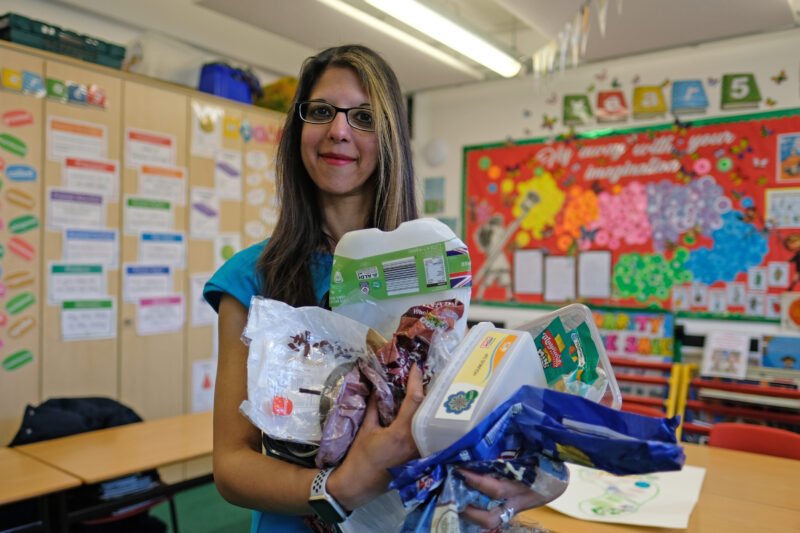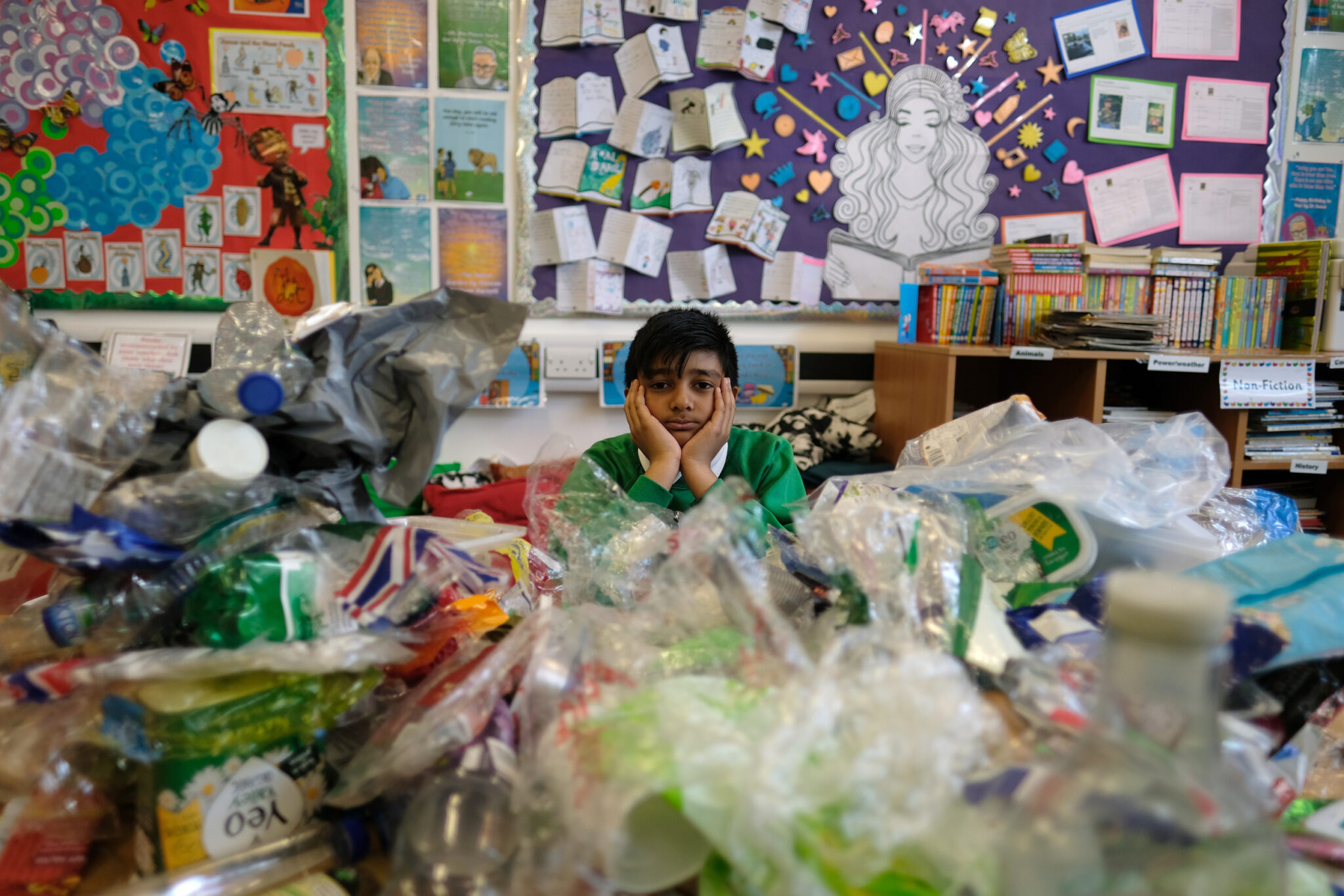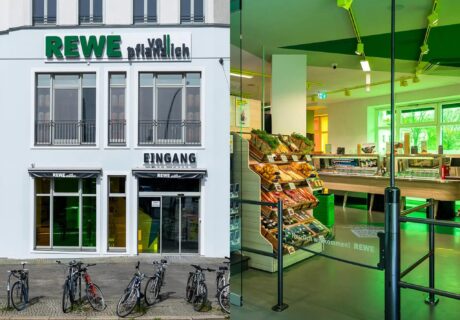The UK’s largest plastic waste survey, The Big Plastic Count, has found that UK households discard on average 60 pieces of plastic packaging per household weekly, which adds up to an estimated 1.7 billion pieces of plastic nationally per week. The survey, conducted by Greenpeace UK and Everyday Plastic, with academic support from the Revolution Plastics Institute at the University of Portsmouth found that this number equates to 90 billion pieces of plastic packaging being thrown away annually, only 17% of which is recycled domestically.
The Big Plastic Count saw participation from nearly 225,000 individuals, from over 77,000 households, and numerous members from community groups and businesses across the UK as it ran from 11-17 March this year. This figure included 28,000 pupils from over 5,000 school classes, demonstrating the desire for change amongst young people. Counts were submitted across all 650 parliamentary constituencies, and 50 MPs across all parties, including ministers and shadow ministers, also took part.
Further results from The Big Plastic Count 2024 revealed:
- UK households throw away an estimated 1.7 billion pieces of plastic weekly (60 pieces per household per week), equivalent to 90 billion a year. 1.7 billon pieces of plastic would take one person 53 years and 7 months to count at one second per piece.
- Snack packaging (699,932 pieces) and fruit and veg packaging (697,085 pieces) emerged as the most commonly counted plastic items.
- Over half (58%) of the pieces of plastic packaging thrown away are being incinerated – up 12% from 46% in 2022.
- 17% was recycled in the UK, followed by waste exports (14%) and landfill (11%).

Approximately 225,000 participants from households, including 28,000 schoolchildren and community groups and businesses nationwide, counted their plastic waste.
Inadequate Action on Plastic from Supermarkets
With 81% of plastic counted consisting of food and drink packaging, likely coming from supermarkets, Greenpeace and Everyday Plastic are urging supermarkets to do more to reduce unnecessary plastic packaging.
As part of the UK Plastics Pact, supermarkets promised to make all their packaging reusable, recyclable or compostable by 2025, focusing on ‘supercharging recycling’. These results show that they are miles off reaching that goal – despite it being unambitious in the first place. Recycling will never be able to catch up with the volume of plastics being produced and so supermarkets must match the ambition of the UK public, who are overwhelmingly in favour of reuse, refill and reduction schemes that transform how we shop, as new Greenpeace International polling shows.
The Global Plastics Treaty
The Big Plastic Count 2024 comes ahead of the fourth Intergovernmental Negotiating Committee (INC4) meeting for a Global Plastics Treaty, which will be held in Ottawa, Canada, this month. Recent polling from Greenpeace International, found that 69% of UK residents support the Global Plastics Treaty agreeing a reduction in plastic production, in order to stop biodiversity loss and limit global warming to 1.5 degrees Celsius.
In response to the alarming figures from The Big Plastic Count, Greenpeace UK and Everyday Plastic issue a call to action for the government to:
- Show leadership at the Global Plastics Treaty negotiations by calling for a legally binding global target to cut plastic production by at least 75% by 2040
- Speed up the introduction of innovative reuse and refill models.
- Completely ban all plastic waste exports by 2027 at the latest.
- Immediately implement an all-in Deposit Return Scheme (DRS) and Extended Producer Responsibility (EPR) requirements for recycling and reuse.
- End approvals for new incineration facilities.
“We’re using everyone’s evidence from The Big Plastic Count to confront ministers with the scale of the plastic waste problem and to show the extent of the public’s concern and demand for solutions. The plastics crisis is out of control, with production set to triple by 2050 if the industry has its way,” said Rudy Schulkind, Political Campaigner at Greenpeace UK. “The worst affected are the marginalised communities and People of Colour who are more likely to live near incineration sites or to be harmed by the waste we dump in countries in the Global South. This year, we have a once-in-a-generation opportunity to finally secure a global, legally binding target to radically reduce plastic production, but it will only deliver the kind of progressive action needed if countries like the UK push for plastic production to be reduced by at least 75% by 2040.”
“If I started counting every bit of plastic packaging the UK throws away in a week, it would take me until 2077 to count every piece. Our national survey shows tidal waves of plastic packaging leaving homes every week. The problem is huge, and the challenge of fixing it can feel overwhelming.” Laura Burley, Project Lead for The Big Plastic Count at Greenpeace UK
To find out more visit The Big Plastic Count.





